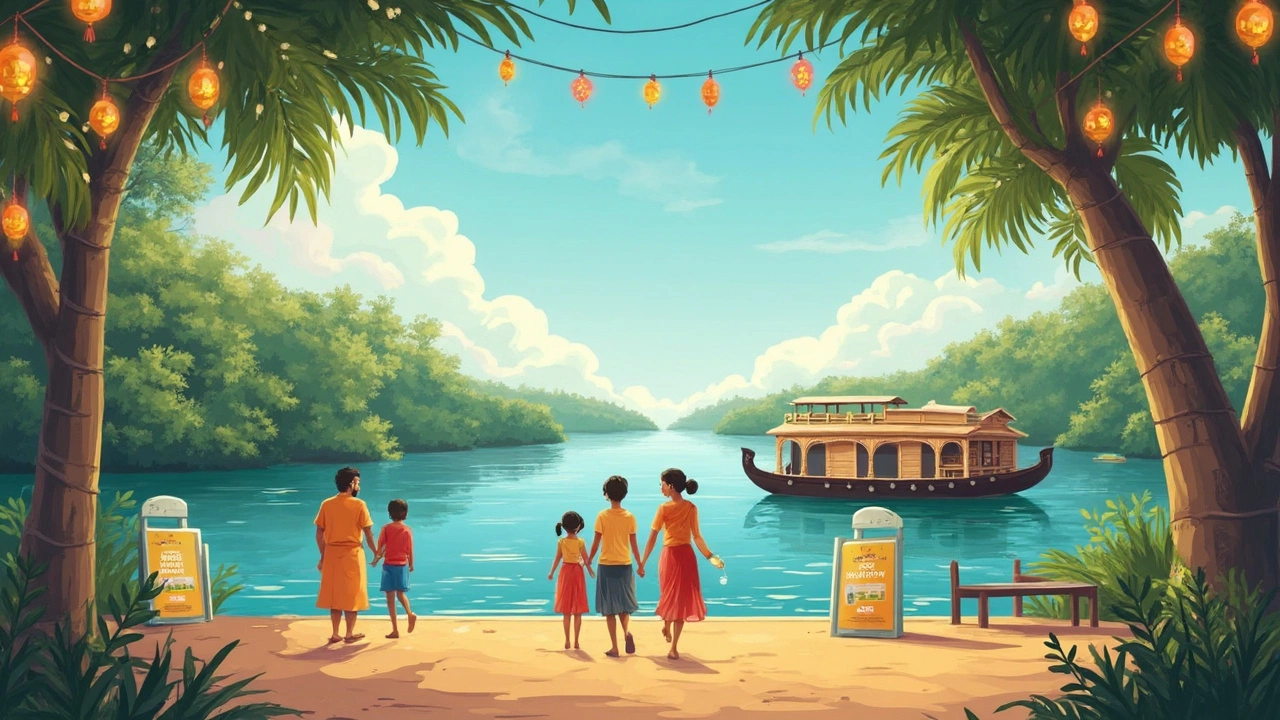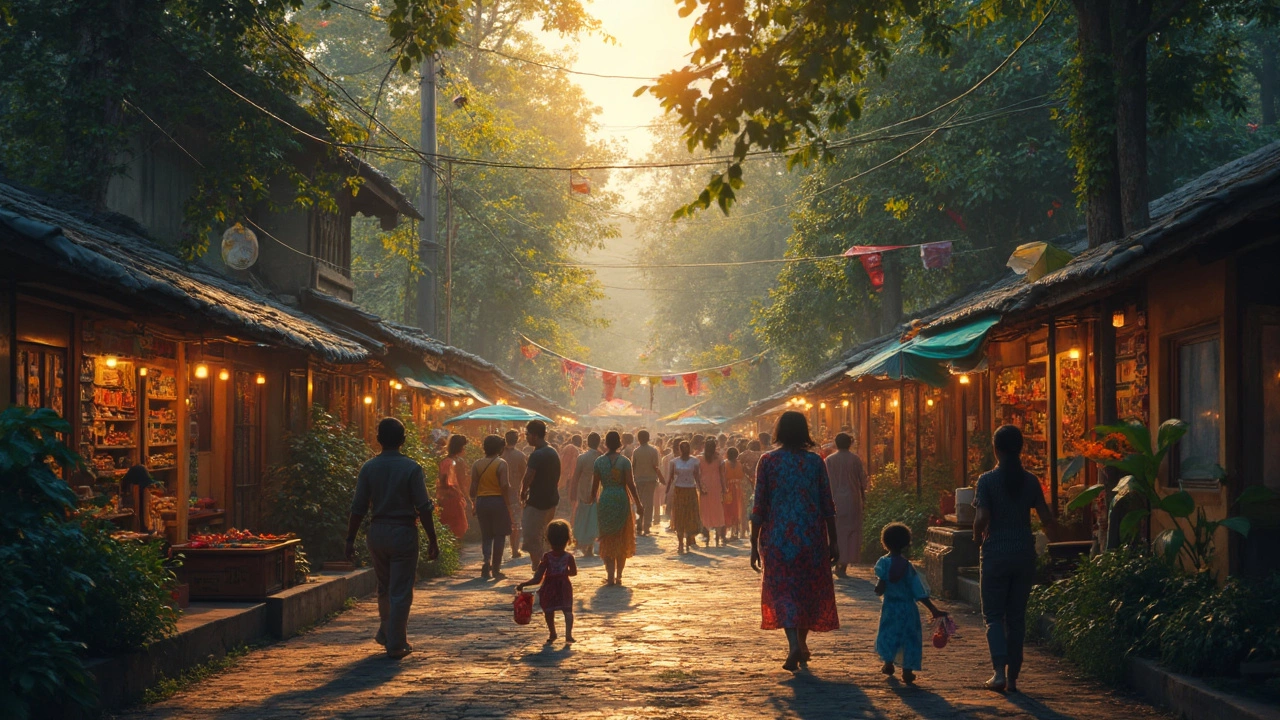Thinking of heading to Kerala this year? A lot of people have the same idea, and for good reason—Kerala’s backwaters, spice markets, and hill stations are the kind of stuff travel dreams are made of. But before you grab your bags, you’re smart to ask if Kerala is actually safe these days.
Here’s the honest answer: it’s mostly good news. As of April 2025, Kerala is welcoming tourists with open arms, and the vibe is warm and relaxed. Still, the wise traveler checks the latest updates, watches for political rallies, and pays attention to weather warnings (heavy rains can turn roads into rivers in monsoon season). Check your embassy travel advisories before booking, just in case.
One thing everyone seems to agree on—Kerala feels a lot safer than most big Indian cities. You’ll see solo travelers and groups, old and young, all blending in at tea shops and houseboats. Petty crime isn’t common, but it’s not non-existent. Lock your bags, keep digital copies of your important documents, and don’t get pulled into random street games or “free” tours that turn into awkward sales pitches.
- What’s Happening in Kerala Right Now?
- Health, Hygiene, and Local Rules
- Travel Safety: Real-World Advice
- Cultural Nuances and Common Scams
What’s Happening in Kerala Right Now?
So, what’s Kerala really like this year? Here’s the lowdown. Kerala tourism is up and running at full speed after a few slow years. The state’s main airports—Cochin, Trivandrum, and Calicut—are running smoothly. No major travel restrictions are in place as of April 2025. You’ll find lots of international flights, and visa-on-arrival continues for most Western travelers.
On the ground, local life is busy but pretty laid back. The recent elections wrapped up peacefully, so you don’t need to stress about big political events messing up plans. There’s been a slight uptick in cultural festivals, too. If you’re lucky, you might catch a local temple festival or traditional Kathakali performance in Kochi or Trivandrum.
Weather-wise, it’s already heading toward pre-monsoon season, which means it’s hot and getting humid, but not yet those crazy rains. Flooding and landslides usually only start up during the heaviest monsoon months (June-August). For now, the roads and tourist sites are open, and houseboat cruises in Alleppey and Kumarakom are back in full swing.
Demand for Kerala safety and hygiene standards is still front and center after all that the world went through recently. Hotels, restaurants, and guides seem to have kept the habit of regular cleaning, and masks indoors aren’t required anymore. Hand sanitizer dispensers still pop up at bigger attractions just in case someone wants to play it safe.
| Kerala Now (April 2025) | Details |
|---|---|
| Flight operations | Normal, with full connectivity |
| Tourist sites | All open, no major restrictions |
| Weather | Hot, humid, pre-monsoon (rains expected June onwards) |
| Covid protocols | No masks needed, good hygiene practices remain |
| Political protests/strikes | None currently planned |
Bottom line: Now’s actually a solid moment to think about visiting Kerala 2025. You won’t be battling huge crowds, but there’s enough buzz to make it feel lively, not empty. Just check the news for any strikes or heavy rain warnings before you pack up and go.
Health, Hygiene, and Local Rules
When it comes to Kerala safety, health and hygiene aren’t something you can ignore. Most city water isn’t safe to drink, so stick to bottled water or refill at trusted filtered dispensers. Even locals buy bottled water, so there’s no shame in steering clear of the tap. Street food is legendary here, but aim for busy stalls with a high turnover. If the samosas have been sitting out all afternoon, just say no.
The last major dengue fever spike was back in 2022, but mosquitoes still love Kerala’s lush scenery. Bring and use mosquito repellent, and sleep under nets if your hotel offers them. Pharmacies like MedPlus are everywhere, so stocking up isn’t hard if you forget. No vaccines are officially required to enter Kerala, but routine shots (like Hepatitis A and Typhoid) are worth updating, especially if you’re a foodie looking to try everything on the street.
You’ll notice people wear masks on crowded buses and trains. COVID isn’t causing panic anymore, but many locals still mask up in markets as a habit. It’s more about courtesy and staying cautious. Most places have hand sanitizer stations at entrances, but bring a small bottle for traveling between attractions.
| Travel Health Tip | How to Handle It |
|---|---|
| Drinking Water | Buy sealed bottled water or use trusted dispensers |
| Food Safety | Pick busy stalls; skip uncooked salads and ice in drinks |
| Mosquitoes | Apply repellent, wear long sleeves in the evening, use nets |
Local rules are pretty straightforward. Dress modestly, especially at temples, by covering your shoulders and legs. Public smoking and littering can get you fined—Kerala takes both seriously. Alcohol is only served in government-approved bars, and public drinking will land you in trouble. Always ask before photographing people, especially in rural areas, as not everyone loves being snapped for a travel blog post.
Follow these simple steps, and visiting Kerala becomes a breeze from a health and hygiene angle. You’ll blend in and stay out of trouble, just the way you want for a chill holiday.

Travel Safety: Real-World Advice
When it comes to Kerala safety, street smarts work just as well here as in any other tourist spot. You won't run into much violent crime, but stuff like petty theft or bag snatching can happen, especially in crowded markets or bus stations. Always use the hotel safe if you have one, and keep a photocopy or phone scan of your passport and visa. Don't keep all your cash in one place, either—it’s just easier to spread it out.
Public transport in Kerala is mostly safe, whether it’s the government-run buses, trains, or app-based cabs. But women travelers should stand near families or in busy areas at night. If you’re booking a cab, stick with apps like Uber or Ola, or your hotel’s trusted drivers. At night, avoid wandering around beaches or isolated areas alone—stick to well-lit spots and busier streets.
One less-known tip: Watch out for traffic when you cross roads. Kerala drivers have their own rhythm, and zebra crossings sometimes don’t mean much. Always look both ways—twice.
- If you’re by the backwaters, double check that lifejackets are actually provided on houseboats. It’s not always a given, even if they say it is.
- Drinking water straight from the tap is a no-go. Buy sealed water bottles or use a travel filter.
- Use ATMs in secure spots, like inside banks or big hotels—not standalone machines late at night.
- Be careful with street food. It’s delicious but stick to busy stalls where you can see food being cooked fresh and there’s a local crowd.
- If you rent a scooter, make sure you wear a helmet and don’t leave bags in the storage compartment when parking at touristy places.
Scams are less pushy in Kerala compared to bigger cities, but you might get quoted “foreigner prices” by taxi drivers or guides. Bargaining is normal. For trips and tours, book through your hotel or a travel desk with good reviews. Don’t get lured into gemstone or spice shop tours that promise crazy discounts—they almost always come with a catch.
If you get sick, Kerala’s healthcare is pretty good, especially in cities like Kochi or Thiruvananthapuram. Most doctors speak English, and pharmacies are everywhere.
| Kerala Safety Quick Facts (2025) | |
|---|---|
| Police Emergency | 100 |
| Women’s Helpline | 1091 |
| Major city crime rate (2024) | Low compared to Mumbai or Delhi |
| Recommended travel medical insurance | Yes |
Stick with your gut feelings, don’t overshare travel plans with strangers, and you’ll find visiting Kerala 2025 is more chill and welcoming than most expect.
Cultural Nuances and Common Scams
Kerala has a unique way of doing things, and blending in can make your time here a lot smoother. Locals are usually polite but reserved at first. If you greet someone with a smile or a simple 'Namaskaram,' you’re already off to a good start. Dress a bit more modestly than you might at home—tank tops and short shorts draw attention, especially in smaller towns or temple areas. At temples, both men and women should keep shoulders and knees covered. Shoes always come off outside temple entrances.
When it comes to money, use cash for smaller shops and markets, but always count your change. Most restaurants and stores accept cards now, but street vendors rarely do. If someone offers you 'special spices' or 'authentic Kerala oils' at a dirt-cheap price, you’re probably getting the tourist markup—or worse, a fake product. If you want real stuff, stick to government-run outlets or well-known shops.
Common scams in Kerala aren’t as aggressive as in some bigger cities, but they do exist. Tuk-tuk or auto rickshaw drivers might try the old ‘meter is broken’ trick. Ask for the meter or agree on a price before you hop in. At popular tourist sites, you might meet locals offering guided tours and promising inside access—they sometimes rush you around, then hit you up for a hefty tip or stop at their 'uncle's handicraft shop.'
- Always book houseboats through established operators—never from someone who approaches you out on the street.
- When buying train tickets, use the official Indian Railways website or a reputable agent. Avoid random helpers at stations—they sometimes sell fake or overpriced tickets.
- Be wary of extra charges showing up on restaurant bills—always check the math, especially in busy tourist areas like Fort Kochi or Munnar.
One stat to keep in mind: a 2024 survey by Kerala Tourism reported that less than 3% of international visitors encountered serious scams, making Kerala tourism one of the safest bets in India. Still, don’t let your guard down. Trust your gut. If something feels off, just walk away.
